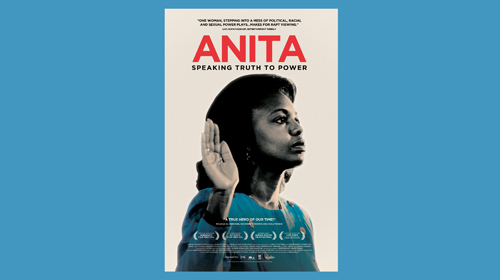
Everyone should go see , a recently released documentary that revolves around Anita Hill's controversial 1991 Senate hearing on the nomination of Clarence Thomas to the Supreme Court of the United States. As most people know, in the hearing, she testified about Thomas' unwanted sexual advances towards her while she worked for him in the early 1980s.
As Anita says in the film, "harassment is not really about sex. It's about power, and abusing it." After experiencing harassment, Anita reclaimed her power by using her voice. So often it can seem that one voice and one story do not matter. It seems easier to remain silent. But if we can find the courage to come forward and tell our stories, as Anita did, that courage can ripple outward.
The film shows how 20 years after the Senate hearing, Anita's courage continues to ripple outward. It brings issues of sexual harassment and gender equality to the fore, highlighting both how far we have come as a nation, and how far we still have left to go.
In the early 1980s, sexual harassment was just beginning to be a viable legal claim. The Supreme Court of the United States did not in the workplace as illegal discrimination under Title VII of the Civil Rights Act of 1964 until 1986.
Through the 1980s, the Court continued to scale back the robust discrimination protections of the Civil Rights Act, until November 21, 1991, about one month after Anita Hill's mid-October testimony, a perhaps guilt ridden Congress bolstered anti-discrimination laws with the .
Despite progress, sexual harassment remains a widespread problem today. In particular, students of a variety of ages are still experiencing educational environments permeated with harassment and discrimination, as the documentary highlights.
Recently, the Federal Office for Civil Rights (OCR) found that officials at an East Texas high school were wrong to punish a student who reported she was raped by another student on campus. OCR required the school to revise its Title IX policies to prevent similar future occurrences.
Charges are pending against Carnegie Mellon University for similar violations of discrimination laws.
Through speaking out, these students, like Anita Hill, reclaimed their power and helped pave a path of equality for future students.
Learn more about gender-based violence and other civil liberty issues: Sign up for breaking news alerts, , and .

